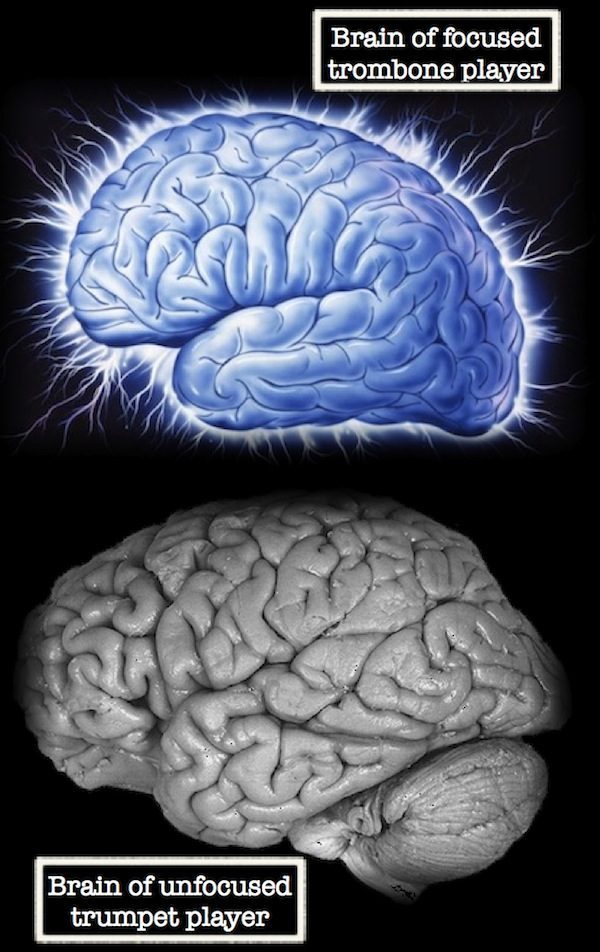Practicing with a wandering mind
I don´t know about you, but my mind tends to take a stroll during my trombone practicing. I have surrendered to the fact that I will walk around the room while playing, that´s ok, but not being focused on the task mentally is worse. This post is not about cleaning your mind, meditation, finding your inner zen or other new age-ish approaches.
Solutions
My best solution is to plan what you will work on, and stick to that until you got it down. Don not try to cover all fields of trombone playing; scales, etudes, legato, flexibility, long notes, short notes, high notes, low notes, green notes, slide bending, trombone case remodeling, mouthpiece disinfection… Choose one or two focus areas, and find some suitable exercises (preferably some that you can not play properly already) and stick with that until it works. Of course you should work on general trombone playing as well, warming up properly, and make sure that air flow and embouchure is in place, but spend most of the practice time on the one thing you want to improve.
[widgets_on_pages id=”Ads_in_post_sidebar_top”]
How-to in 7 steps
- Select your focus area(s) – not more than two at once
- Make sure that you are really interested in improving the selected areas, or can see a very clear reason to work on them
- Find suitable exercises that you don´t master already
- Write down your short term goals (“master Gb major scale inversions in one week from now”)
- Work on your target areas right after warm up while your mind is still fresh
- Find ways to extend your exercises; play patterns in all 12 keys, invert, transpose or make up new exercises daily
- Reward yourself with some “fun” playing – a play-a-long tune, your favorite trombone concerto or whatever. Or five minutes on Facebook…
- Always make music and eat your vitamins!!!!!!
I hope this will help you achieve your goals! When I look at my trombone vocabulary, especially when improvising, I tend to use patterns, phrases and scales that I got down years ago. And it is all things that I really gave some special attention! Unfocused, continuos practicing helps. Focused practicing makes master.
Over and out,
Anders
PS. And needless to say, this goes for all brass instruments. And all other instruments too…and most things in life about learning or improving!
2 Comments
-
Hi Anders, thank you again,that seven steps are pure gold advices, mainly the first step for me; reading it I can see now that less is more.
Very grateful (sorry my english). -
Hi Terry!
Nice to hear from you. Keep me updated on how it works out for you!
Anders



